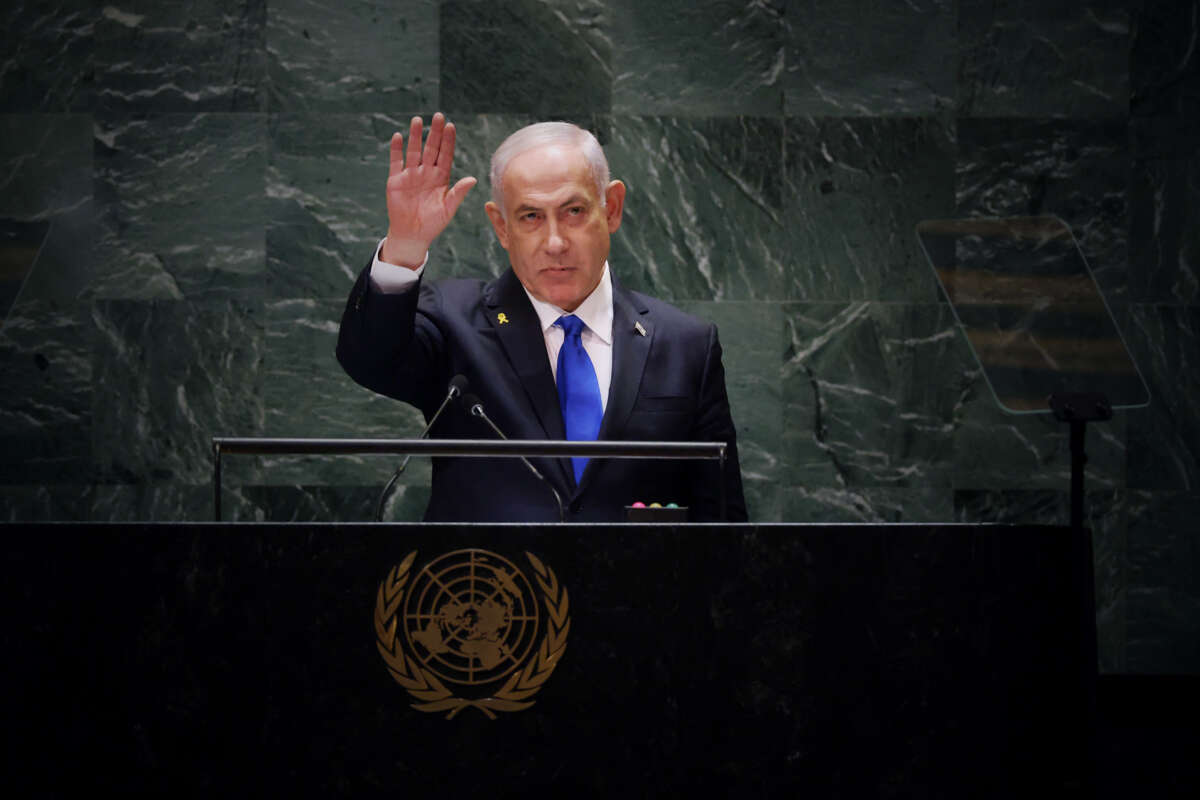A day after French Prime Minister Michel Barnier told Parliament that the government would fulfill its obligations as a state party to the Rome Statute and uphold the International Criminal Court’s arrest warrants for top Israeli officials, the country’s Foreign Ministry announced it would not detain the two officials if they set foot in France.
The Foreign Ministry claimed Israeli Prime Minister Benjamin Netanyahu and former Defense Minister Yoav Gallant have “immunities” because Israel is not a party to the Rome Statue and doesn’t recognize the authority of the ICC.
“Such immunities apply to Prime Minister Netanyahu and other ministers concerned and will have to be taken into account if the ICC were to ask us to arrest and surrender,” said the ministry.
The ICC issued the warrants on November 21, saying it had found “reasonable grounds to believe” that Netanyahu and Gallant have intentionally deprived civilians in Gaza of food, water, medicine, and other essentials since Israel began its bombardment of the enclave in October 2023 and its near-total blockade on humanitarian aid.
ICC prosecutor Karim Khan has accused Netanyahu and Gallant, as well as a Hamas leader, of crimes against humanity and war crimes.
Article 27 of the Rome Statute states that all people subject to arrest warrants are equal before the ICC, including heads of state.
Article 98 has been invoked as a “loophole” by state parties in the past when governments have refused to arrest other leaders whose countries do not recognize the ICC; it states that the court can’t request the arrest of a non-ICC official if the arrest would require an ICC member to violate its international law obligations on immunity.
But the ICC rejected Jordan’s Article 98 claim when it refused to arrest former Sudanese head of state Omar al-Bashir in 2017 and Mongolia’s when it refused to turn over Russian President Vladimir Putin earlier this year.
“No international court has ever found that a head of state or high ranking individual has immunity before it, and Article 27 was meant to codify that principle,” said Leila Sadat, former ICC special advisor on crimes against humanity, told Middle East Eye.
Former HRW executive director Kenneth Roth suggested the ICC should reject France’s claim that Netanyahu has immunity, asking if French President Emmanuel Macron would also allow Bashir or Burmese army general Min Aung Hlang to walk free.
“So they will apply this to Putin as well?” added political analyst Yousef Munayyer.
The Middle East Monitor reported that France’s statement on Wednesday came after a phone call between Netanyahu and Macron following the ICC’s announcement last week.
RMC Radio reported that Macron told the Israeli prime minister that France “would uphold international law and noted that judges could grant immunity to heads of state.”
Amichai Stein of the Israeli public broadcasting network KANN reported that senior U.S. and Israeli officials pressured France to make the statement on Wednesday, saying Macron’s government would not take a leading role in Tuesday’s Israel-Lebanon cease-fire deal unless France asserted it would not arrest Netanyahu and Gallant.
Matt Duss of the Center for International Policy called France’s announcement “pathetic” and urged “more legal sanctions against Netanyahu and other ministers as quickly as possible,” noting that the ICC warrants “apparently worked as leverage” to secure the cease-fire.
European Union foreign policy chief Josep Borrell said immediately after the ICC warrants were announced that “decisions are binding on all states party to the Rome Statute, which includes all E.U. Member States.”
But as HRW noted, along with France’s announcement on Wednesday, Hungarian Prime Minister Viktor Orban has invited Netanyahu to Hungary and has said he wouldn’t face arrest there, even though the country is a party to the Rome Statute.
“Ensuring the ICC has the ability to implement arrest warrants will require defending the court against external pressure and coercive measures. That means that right now E.U. support for arrests should include preparedness to adopt measures to protect the court from possible U.S. sanctions,” wrote Alice Autin of HRW’s Communications and International Justice Program.
Our most important fundraising appeal of the year
December is the most critical time of year for Truthout, because our nonprofit news is funded almost entirely by individual donations from readers like you. So before you navigate away, we ask that you take just a second to support Truthout with a tax-deductible donation.
This year is a little different. We are up against a far-reaching, wide-scale attack on press freedom coming from the Trump administration. 2025 was a year of frightening censorship, news industry corporate consolidation, and worsening financial conditions for progressive nonprofits across the board.
We can only resist Trump’s agenda by cultivating a strong base of support. The right-wing mediasphere is funded comfortably by billionaire owners and venture capitalist philanthropists. At Truthout, we have you.
We’ve set an ambitious target for our year-end campaign — a goal of $250,000 to keep up our fight against authoritarianism in 2026. Please take a meaningful action in this fight: make a one-time or monthly donation to Truthout before December 31. If you have the means, please dig deep.
